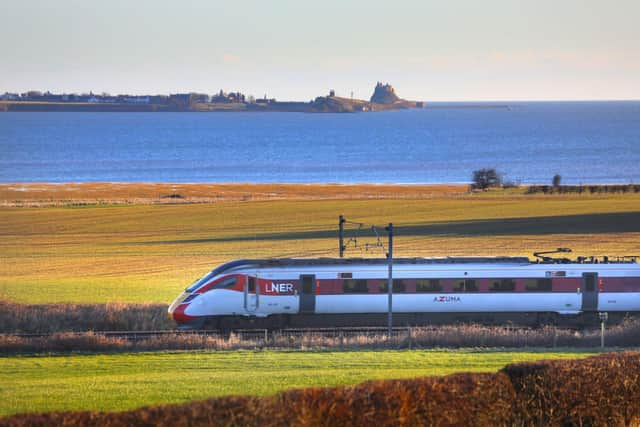Major repairs programme announced following probe of cracks found in Hitachi trains which forced LNER to cancel rail services
and live on Freeview channel 276
The rail operator issued a “do not travel” warning to passengers following the discovery on its flagship Azuma fleet, which forced bosses to urgently withdrawn the majority of its services between Yorkshire and London.
A probe by the Office of Rail and Road (ORR), a transport watchdog, found fatigue cracking in above the wheels of Hitachi-built Class 800 trains was a result of the rolling stock experiencing more movement than allowed in original designs.
Advertisement
Hide AdAdvertisement
Hide AdIt is not known for certain why this happened but potential factors identified include wheel wear – which is when the shape of wheels changes during use – and track design.


Cracks on lifting points – which allow carriages to be raised during maintenance work – resulted from the use of a particular type of aluminium which was corroded by salt in the air.
The withdrawal of Class 800 trains until additional safety checks were introduced led to a week of severe disruption to services last May.
The ORR said “stringent mitigation measures” such as regular inspections were put in place to allow trains to re-enter service “without passenger safety being compromised”.
Advertisement
Hide AdAdvertisement
Hide AdThe trains have since “performed as specified” and “no safety failures” have been recorded.
The report also called on the industry to develop a process for responding to similar “crisis events” in the future.
ORR’s HM Chief Inspector of Railways Ian Prosser said: “Safety remains the number one priority. Our review provides a clearer picture of the issue and we will continue our oversight to ensure work moves forward to agree the permanent solution and our recommendations are acted on.“It is important that the whole industry works together to learn lessons from what has happened and our recommendations will help with that.”
A spokesman for Hitachi Rail, which is expected to take six years to finish repairs to more than 1,700 trains, said it had worked to “keep trains running safely”.
It added: “The proposed engineering solutions outlined in the report are currently being reviewed by all partners.
